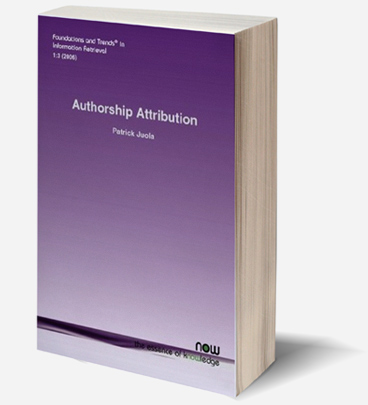Is an internationally noted expert in text analysis, security, forensics, and stylometry. As a faculty member at Duquesne University, he has authored two books and more than 100 scientific publications as well as generated more than two million dollars in Federal research grant funding. As director of the Duquesne University EVL lab, he is the lead architect of the JGAAP project and provides overall scientific direction for Juola & Associates.
Patrick has a decade of experience in the field of software engineering. He has spearheaded many software development projects in a wide variety of fields. He holds both a BS in Computer Science from Duquesne University and an MBA/MIS dual degree from the Katz School of Business at the University of Pittsburgh.
 John Noecker, Jr.
John Noecker, Jr.Is a seasoned expert in the fields of verification and anomaly detection, with a number of papers published in the field. John holds both a BS of Computer Science and a BA of Mathematics from Duquesne University.
 Michael Ryan
Michael RyanMichael is skilled in stream processing on real-time systems and at framework development. He has a BA of Mathematics and a BS of Computer Science from Duquesne University.

Authorship attribution, the science of inferring characteristics of the author from the characteristics of documents written by that author, is a problem with a long history and a wide range of application. It is an important problem not only in information retrieval but in many other disciplines as well, from technology to teaching and from finance to forensics.
The idea that authors have a statistical "fingerprint'' that can be detected by computers is a compelling one that has received a lot of research attention. Authorship Attribution surveys the history and present state of the discipline, presenting some comparative results where available.
It also provides a theoretical and empirically-tested basis for further work. Many modern techniques are described and evaluated, along with some insights for application for novices and experts alike. Authorship Attribution will be of particular interest to information retrieval researchers and students who want to keep up with the latest techniques and their applications. It is also a useful resource for people in other disciplines, be it the teacher interested in plagiarism detection or the historian interested in who wrote a particular document.